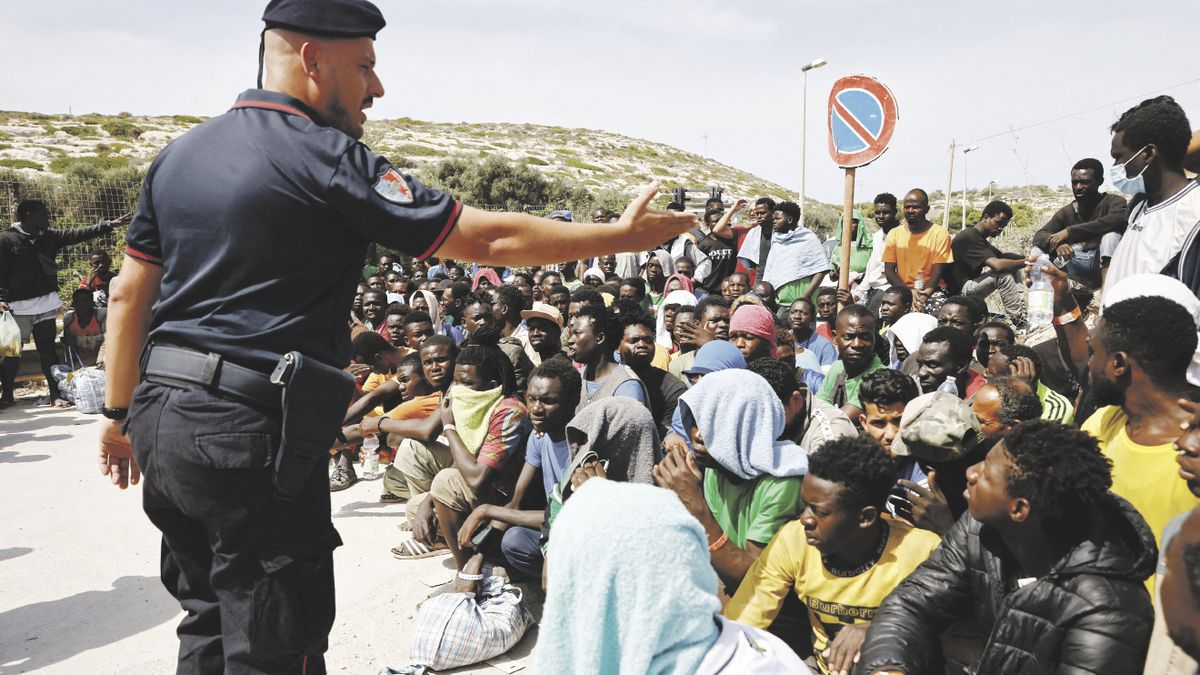The countries of the European Union (EU) yesterday reached an agreement to advance the reform of the bloc’s Migration and Asylum Pact, after three years of stagnation in negotiations.
The new deal proposes extending the duration of immigration detention at the bloc’s external borders, but with the contribution of the least affected countries, either receiving migrants or covering costs.
Reached in Brussels by the permanent representatives of the EU countries, the agreement overcame reservations from Germany and Italy.
The understanding was announced on the X network, formerly Twitter, by the presidency of the EU Council, which this semester is held by Spain.
The Spanish Minister of the Interior, Fernando Grande-Marlaska, noted in a note that this is “a huge step forward on an essential issue for the future of the EU.”
“We are now in better conditions to reach an agreement on the entire asylum and migration pact with the European Parliament before the end of this semester,” said the official.
On January 1, the rotating presidency of the EU Council will be held by Belgium.
The reform of the Migration Pact seeks to organize a collective response to the arrival of a large number of migrants to an EU country, as occurred during the Syrian refugee crisis of 2015 and 2016.
With the agreement reached in Brussels by the permanent representatives of the bloc’s countries, the issue can be raised at the European summit scheduled for Friday in Granada, Spain.
The text, finally, must be negotiated with the legislators of the European Parliament.
Also on the X network, the head of the European Commission, Ursula von der Leyen, welcomed the “excellent news of the political agreement on crisis regulation.”
Meanwhile, the Swedish Minister of Migration, Maria Malmer Stenergard, said she felt “very happy” because what was agreed “is a very important piece of the puzzle of the Migration and Asylum pact.”
Diplomatic sources assured that at the meeting of the permanent representatives in Brussels the delegates from Poland and Hungary voted against, but the majority in favor of the agreement prevailed. These two countries oppose the intention of the European Commission (the executive arm of the EU) to make all countries in the group accept migrants or help cover the costs. In statements to the press in his country, Hungarian Foreign Minister Peter Szijjarto called for “immediately interrupting this migration policy.”
He called for “immediately ending mandatory settlement quotas inviting migrants, and ending support for the business model of human traffickers.”
Last week, the interior ministers of the EU countries seemed close to reaching a difficult agreement to advance the reform, but at the last minute Italy’s opposition thwarted it.
According to diplomatic sources, Italy’s objections relate to the role of NGOs in rescuing migrants on the high seas.
Source: Ambito




